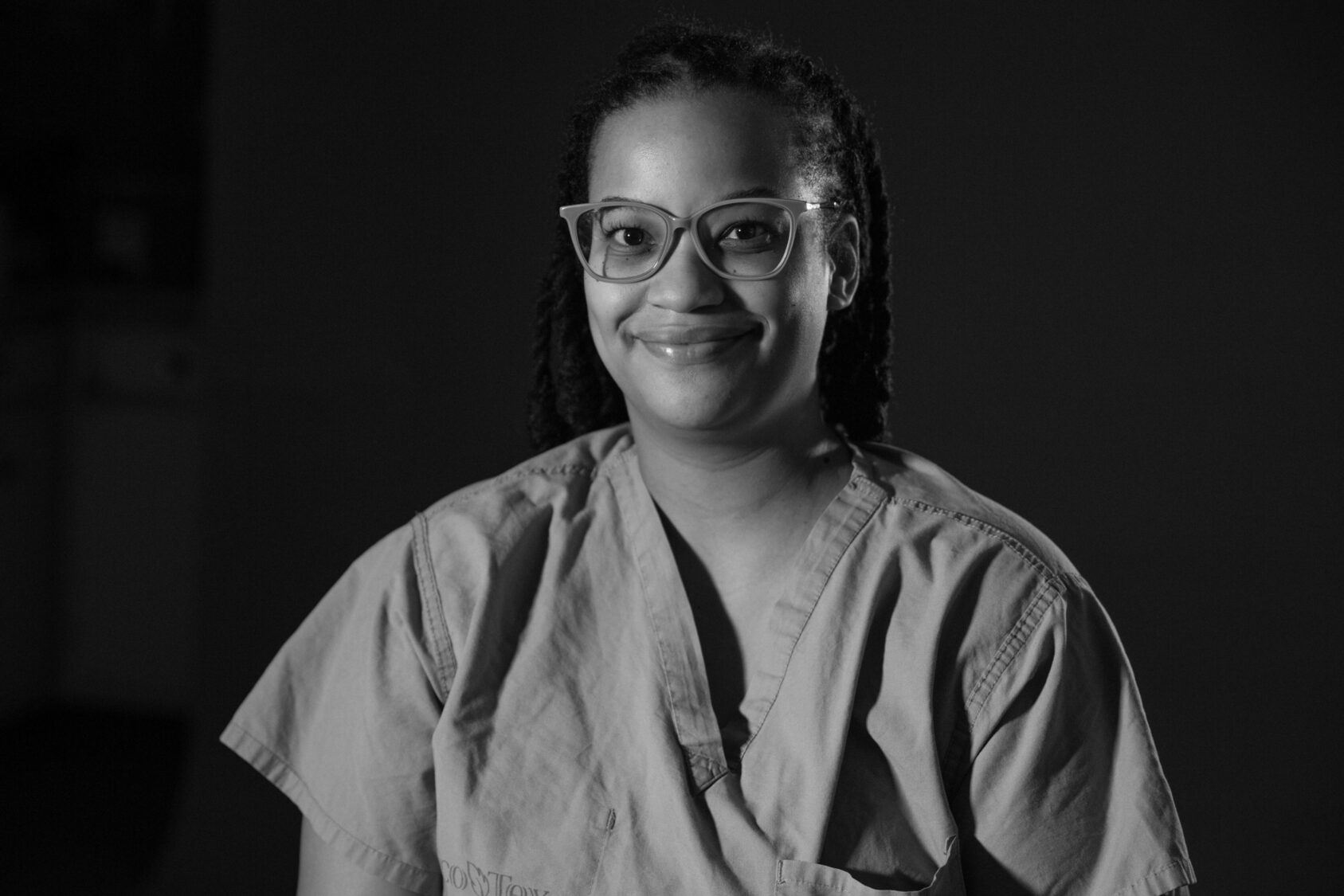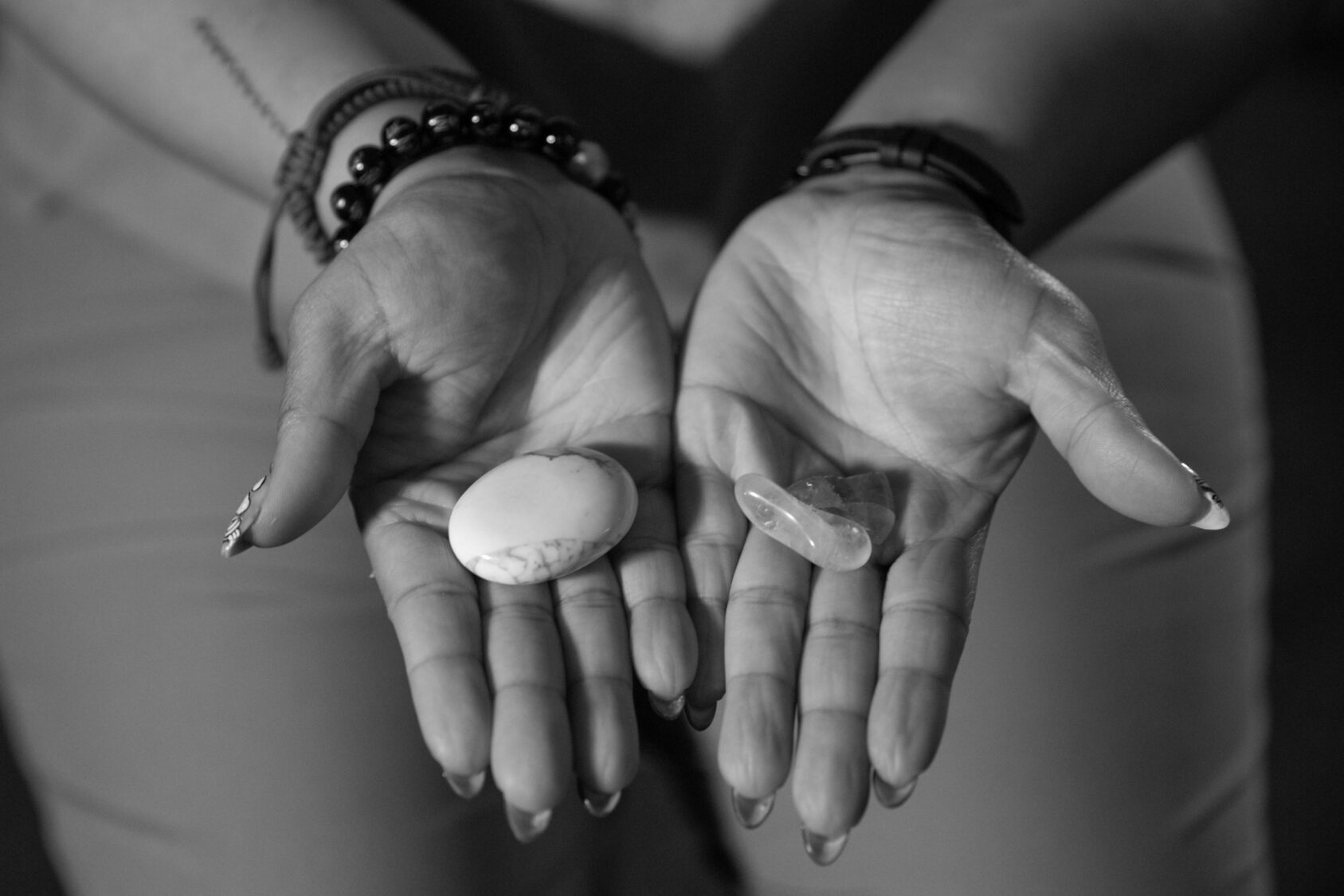
Seanice Dennis
Registered Practical Nurse
I come from a single-parent home. My mom tried her best but with three children on one income, we didn’t have the same privileges as other families. In high school, I wasn’t academically inclined and my mom couldn’t afford the academic supports needed for a student with learning difficulties. I wanted to be a hairdresser but my mom encouraged me to pick a career with job security.
Growing up, I was deemed an at-risk youth, which qualified me for community services and youth mentorship programs. After a victory year of high school, one of my mentors took me to dinner. She asked about my career plans and urged me to consider post-secondary school. That’s what convinced me to go to college. I then enrolled in pre-health sciences and finally got the academic support I needed to succeed.
As an at-risk youth, I was exposed to situations that children shouldn’t be exposed to during their developmental years. I considered a career in social work, to support other at-risk youth in the way that I was, but I couldn’t imagine dealing with that heaviness every day. Nursing provides a nice compromise. There’s some social working involved, some caregiving. And I don’t take it home with me.
I joined St. Joseph’s in 2018 as a Registered Practical Nurse (RPN) on one of our medicine units. In 2020, I completed training to work in the operating room and in 2021, I became the first Black RPN to work in the Cystoscopy Department. RPNs are only recently allowed to work in the cystoscopy suite so it’s been an exciting challenge. As a cystoscopy RPN, I prep patients for their procedures and then I scrub in to assist the urologist with surgical procedures.
I take pride in being the first Black RPN in our department but getting to this point hasn’t been easy. I face constant microaggressions.
Throughout my career as an RPN, I’ve been called a monkey, the N-word. I’ve had patients accuse me of not being Black or ask me what bleaching cream I use because I have a fairer complexion.
These microaggressions don’t stop with patients. I’m often tone policed by colleagues or accused of yelling. I was recounting an incident once when a leader told me that I sounded angry. I wasn’t angry. I was just telling my side of the story. It’s disheartening. I constantly have to be mindful of how I communicate with others to avoid being deemed an angry Black woman.

You never get used to these interactions but you develop coping mechanisms. I’ve been carrying crystals to help ground me when I’m having a challenging conversation. I’ve also become better at verbalizing when I need space or when a patient would be better suited to one of my colleagues.
My team is supportive and it’s been nice to see change starting across the organization. There are more Black staff working in the area of equity and anti-racism, which makes a big difference. If I’m reaching out for support, I don’t have to worry about my tone or how I’m perceived. They just get it.
It’s hard enough having to deal with anti-Black racism in society, I don’t need to encounter it in the workplace too. It would be nice if people were more compassionate to the Black experience. That’s all I want. But even then, I wouldn’t change my experience for anything.
Seanice (Shawn-neece) Dennis is a Registered Practical Nurse in the Cystoscopy Department at St. Joseph’s Health Centre.
As told to Anna Wassermann. Photos by Yuri Markarov. This interview has been edited and condensed.

